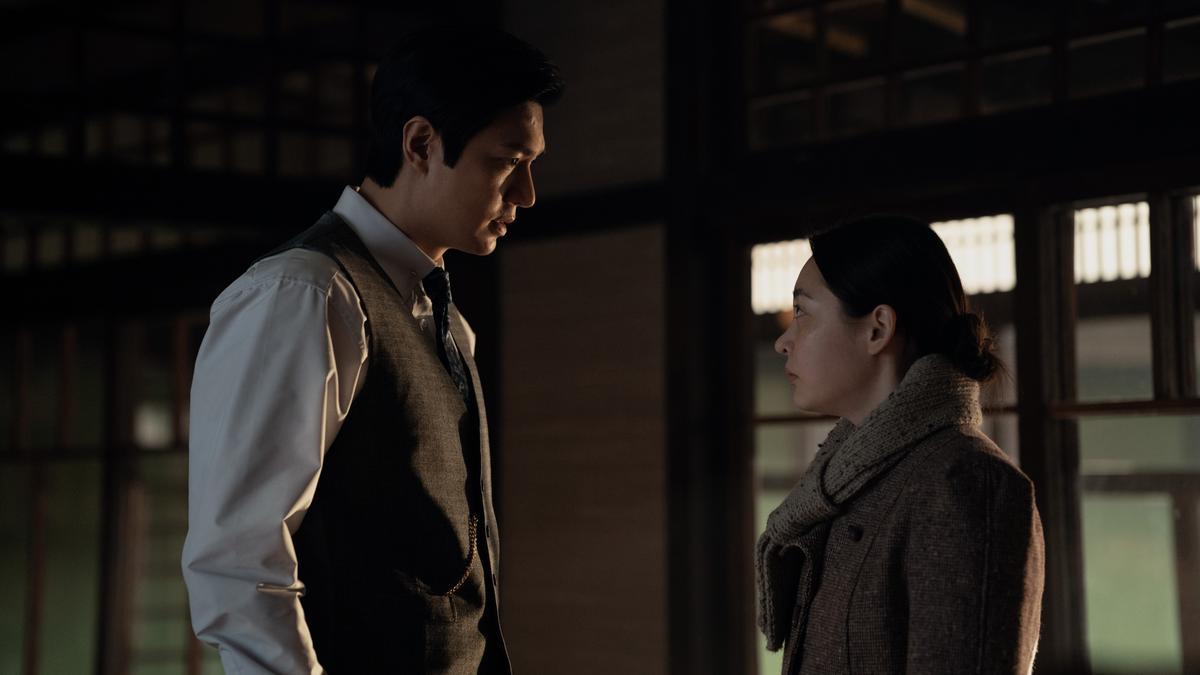
Early in the first episode of Season Two of “Pachinko,” American fighter planes scatter pamphlets over Osaka, urging the residents to petition the emperor to halt the brutal war. The year is 1945, and every corner of Osaka is steeped in the shadows of World War II and the looming threat of bombings. This atmosphere weighs heavily on Sunja and her small family, who are engulfed by the turbulence and insecurity of the time.
Based on the acclaimed best-selling novel by Min Jin Lee, “Pachinko” first debuted in 2022. The eight-episode series deviated from the book’s linear narrative by oscillating between two timelines: the 1940s, which follows Sunja in Korea and Japan during the World War II era, and 1989, focusing on her grandson Solomon Baek as he returns to Japan from New York for a job assignment.
In the inaugural season, viewers saw Sunja grappling with an unexpected pregnancy and attempting to adapt to life in Osaka after leaving Japanese-occupied Korea with her husband, Baek Isak (Steve Sanghyun Noh). In the intervening years, Sunja finds herself burdened with even greater challenges. Her husband Isak is imprisoned for aiding laborers in their fight for fair wages, her brother-in-law Yoseb (Han Joon-woo) is laboring in a Nagasaki factory, and she and her sister-in-law Kyunghee (Jung Eun-chae) are struggling to feed Sunja’s children, forced to endure worm-infested food rations. Displaying steely determination, Sunja declares, “I am good at selling,” as she ventures into the dangerous black market to sell rice wine and support her family.
Veteran actress Yoon Yuh-jung plays the elder Sunja in the 1980s, a period significantly contrasted in the show. Solomon’s father Mozasu (Soji Arai) is preparing to launch a lavish new Pachinko parlor, while Solomon himself is working on attracting investors for a new business venture after leaving his old firm. Solomon’s story arc indicates his struggles: he was moved by an elderly Korean immigrant’s refusal to sell her land, leading him to botch a prior business deal.
A narrative as sweeping and expansive as “Pachinko” deserves careful, almost languorous unfolding on screen, a feat that was executed beautifully in Season One. Amidst the uncertainty of shows facing potential cancellation, “Pachinko” remains unhurried in its second season, starting with an engaging first episode that sets the stage for how the lives of central characters have evolved over time. Minha Kim brings to life Sunja’s sense of helplessness intertwined with her resolve to provide for her children. Adding to the cast are Sunja’s sons, Noa (Kim Kang-hoon) and Mozasu (Eunseong Kwon), enriching the tapestry of the narrative.
.
Mozasu is lively and eager to defeat the invaders, participating enthusiastically in government-mandated drills. On the other hand, Noa is more subdued, burdened by the discrimination faced by zainichis (ethnic Koreans in Japan). As Noa contends with his classmates’ taunts regarding his identity, Solomon in 1989 confronts a racially loaded outburst from a Japanese bakery owner against his grandmother Sunja (Yoon Yuh-Jung). “I’m from Yale University,” Solomon retorts, highlighting the paradox of progress and persistent racial prejudices across generations. Jin Ha captures Solomon’s perpetual state of edginess and ambition, a man on the brink of something either great or disastrous. His storyline deviates significantly from the book, making his future endeavors particularly intriguing.
In the first season, the writers enriched the character of Koh Hansu, whose influence on Sunja’s life was transformative. Lee Min-ho, in arguably his career-best role, portrayed Hansu’s backstory through an episode set against the 1923 Great Kanto Earthquake, directed by Kogonada. Hansu continues to be a shadowy yet significant presence over Sunja and her sons.
Showrunner Soo Hugh has often emphasized the universal themes of “Pachinko,” such as love, loss, grief, and survival that weave through its multi-generational story. One of the show’s greatest strengths is its ability to navigate these immense themes without tumbling into melodrama, keeping the emotional gravity intact. Though the canvas of the story is vast and its scale grander in the new season, “Pachinko” maintains its somber yet evocative storytelling as it transitions into its second season. This depth and sensitivity, evident in the first episode, promise to continue through the remaining seven episodes.
The second season of “Pachinko” is currently available for streaming on Apple TV+, with new episodes released every Friday. This continuation of the series holds promise for viewers who have been captivated by the multifaceted stories of a family bound by survival, ambition, and the enduring power of family ties.












